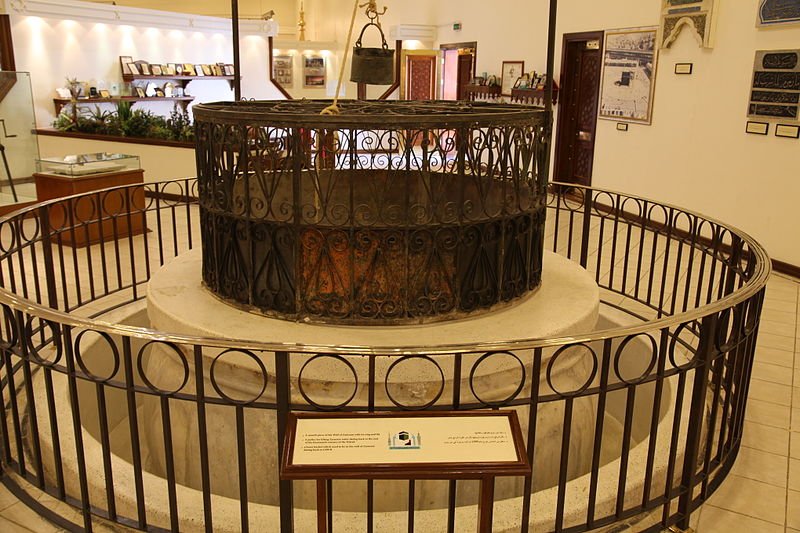Historical and Religious Background :
The origin of the Zamzam Well is linked to the story of Prophet Ibrahim (Abraham), his wife Hajar
(Hagar), and their son Prophet Ismail (Ishmael). According to Islamic tradition, when Ibrahim left Hajar
and the infant Ismail in the desert near Mecca as an act of faith, they soon ran out of water. Desperate
for water to quench her son’s thirst, Hajar ran between the hills of Safa and Marwah seven times,
seeking help. In response to her prayer, the angel Jibril (Gabriel) appeared, striking the ground with
his wing (or heel), and water began to flow from the earth. This miraculous spring became known as the
Zamzam Well.
Religious Significance :
Spiritual Symbolism :
The Zamzam Well represents divine intervention and mercy, showing how God answered Hajar’s prayers
in her time of need. This event is remembered during the pilgrimage (Hajj) through the ritual of Sa’i,
where pilgrims walk between Safa and Marwah, re-enacting Hajar's search for water.
Blessed Water :
Zamzam water is considered holy, and many Muslims believe it possesses healing properties, both
spiritual and physical. The Prophet Muhammad is reported to have said, "Zamzam water is for whatever
purpose it is drunk," meaning it is beneficial to drink with good intentions.
Part of Hajj and Umrah :
Drinking Zamzam water is a recommended practice for those performing Hajj and Umrah pilgrimages.
After the pilgrimage, pilgrims often bring Zamzam water back home to share its blessings with family and
friends.
Characteristics of the Well :
Depth and Capacity :
The well is approximately 30 meters (98 feet) deep, with a water yield that has remained consistent
for centuries, even with millions of people drinking from it annually.
Self-Sustaining Source :
Despite its high usage, the Zamzam Well has never dried up, which is considered a miracle. It
continuously replenishes itself, maintaining its water quality and mineral content naturally.
Maintenance and Preservation :
The Saudi government has taken extensive measures to preserve and protect the Zamzam Well, ensuring that
it remains clean and accessible to pilgrims. Pumping systems now deliver Zamzam water to various parts
of the mosque, allowing easy access for visitors. The water is tested regularly to ensure its quality
and purity.
Modern-Day Significance :
For Muslims, Zamzam water symbolizes faith, endurance, and divine assistance. People who drink it do so
with the hope of receiving physical and spiritual benefits. Bringing Zamzam water home has become an
essential part of pilgrimage for many Muslims, as it is a way of sharing blessings with others.
Fun Fact :
Many scientific studies have been conducted on Zamzam water. It is uniquely high in calcium and
magnesium, with naturally occurring fluoride that gives it some antibacterial properties. These
qualities add to the belief in its healing benefits.
In summary, the Zamzam Well is more than just a water source. It is a symbol of faith, resilience, and
divine favor, playing a key role in the spiritual lives of Muslims around the world.



